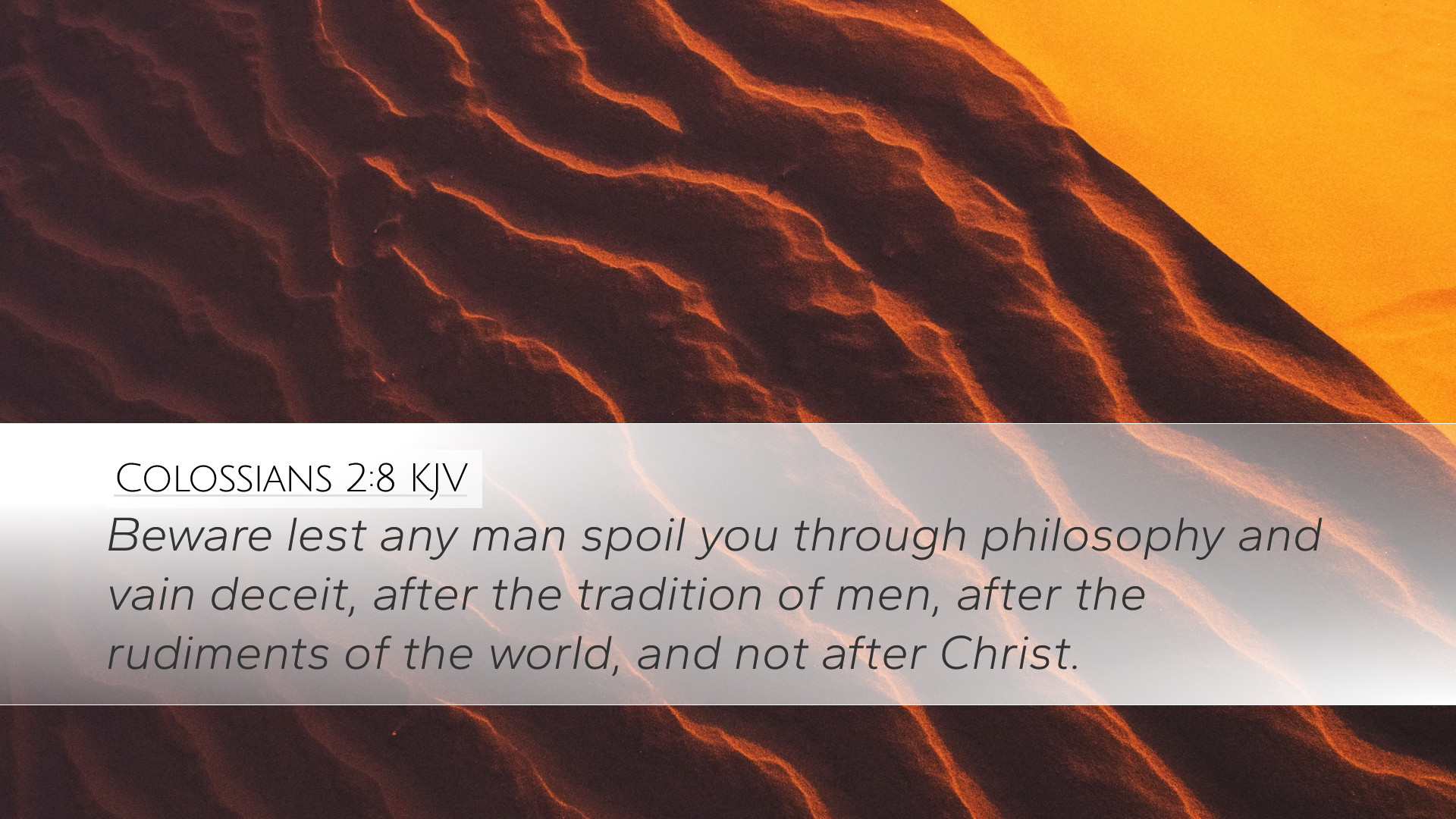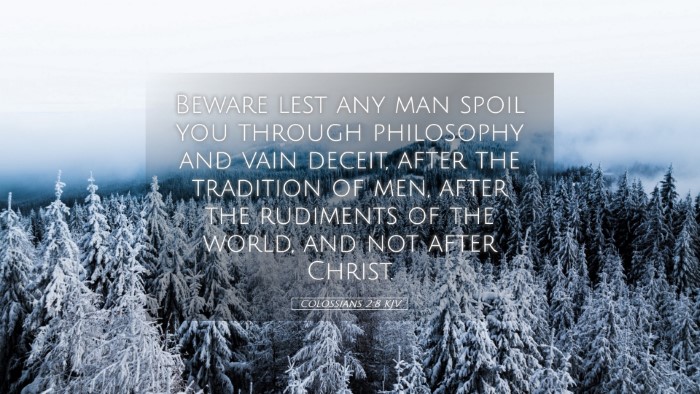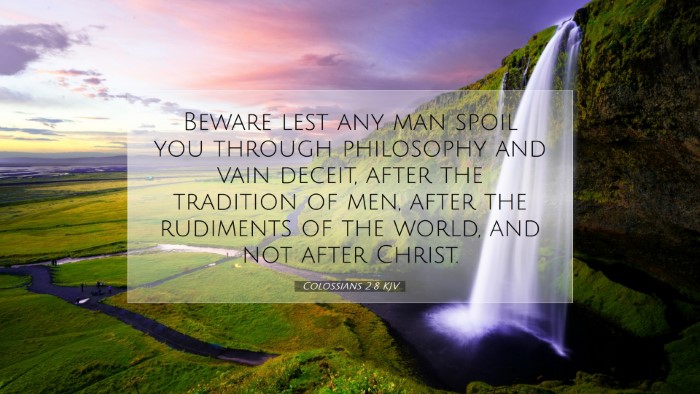Commentary on Colossians 2:8
Bible Verse: Colossians 2:8 - "Beware lest any man spoil you through philosophy and vain deceit, after the tradition of men, after the rudiments of the world, and not after Christ."
Introduction
The exhortation found in Colossians 2:8 serves as a crucial warning against the philosophies and empty deceit that aim to detract from the sound teaching of Christ. In this commentary, we will synthesize insights from various public domain sources, including Matthew Henry, Albert Barnes, and Adam Clarke, to provide a comprehensive understanding of this verse.
Exegesis of the Verse
This verse begins with the admonition to "beware," emphasizing the need for vigilance among believers. The Apostle Paul addresses the Church in Colossae, warning them about the deceptive philosophies that could lead them away from the truth of the Gospel.
Philosophy and Vain Deceit
According to Matthew Henry, the term "philosophy" here refers not just to academic philosophy but to worldly wisdom that contradicts divine revelation. Such philosophies can be enticing but are ultimately empty and deceitful.
Tradition of Men
Albert Barnes emphasizes that the "tradition of men" can often lead believers to prioritize human customs and doctrines over the pure teachings of Scripture. This tradition can become a hindrance through which true faith is obstructed.
Rudiments of the World
Adam Clarke interprets the "rudiments of the world" as the elementary principles that govern human experience and interaction. These rudiments may often seem practical but can lead to spiritual confusion if they are prioritized over Christ.
Theological Implications
Colossians 2:8 invites a deeper examination of the sources of wisdom and guidance for believers. The theological implications of this verse underscore the importance of distinguishing between divine revelation and human reasoning.
- Divine vs. Human Wisdom: The contrast between Christ's teachings and human philosophies highlights the need for believers to ground themselves in faith.
- The Danger of Deception: The warning against deceitful philosophies suggests that the influence of worldly ideologies can subtly lead believers astray.
- Unity in Christ: By following Christ's teachings, believers are called to a unified and coherent understanding of faith, free from the fragmentation caused by human traditions.
Practical Applications for Believers
As we contemplate the themes of this verse, several practical applications emerge that are vital for Christians today.
- Vigilance: Believers are encouraged to stay alert to the influences that may attempt to sway them away from core Biblical truths.
- Scriptural Literacy: Knowledge of Scripture is paramount for discerning truth from falsehood, making study a fundamental practice for every Christian.
- Community Discernment: Engaging with fellow believers in dialogue about spiritual matters can strengthen communal understanding and protect against deceptive ideologies.
Conclusion
Colossians 2:8 serves as a poignant reminder of the spiritual vigilance required in the Christian walk. By integrating the insights from Matthew Henry, Albert Barnes, and Adam Clarke, we recognize the importance of remaining steadfast in Christ against the alluring but empty philosophies of the world. It is the grace and revelation of Christ that offers believers the true wisdom necessary to navigate their faith journey.


